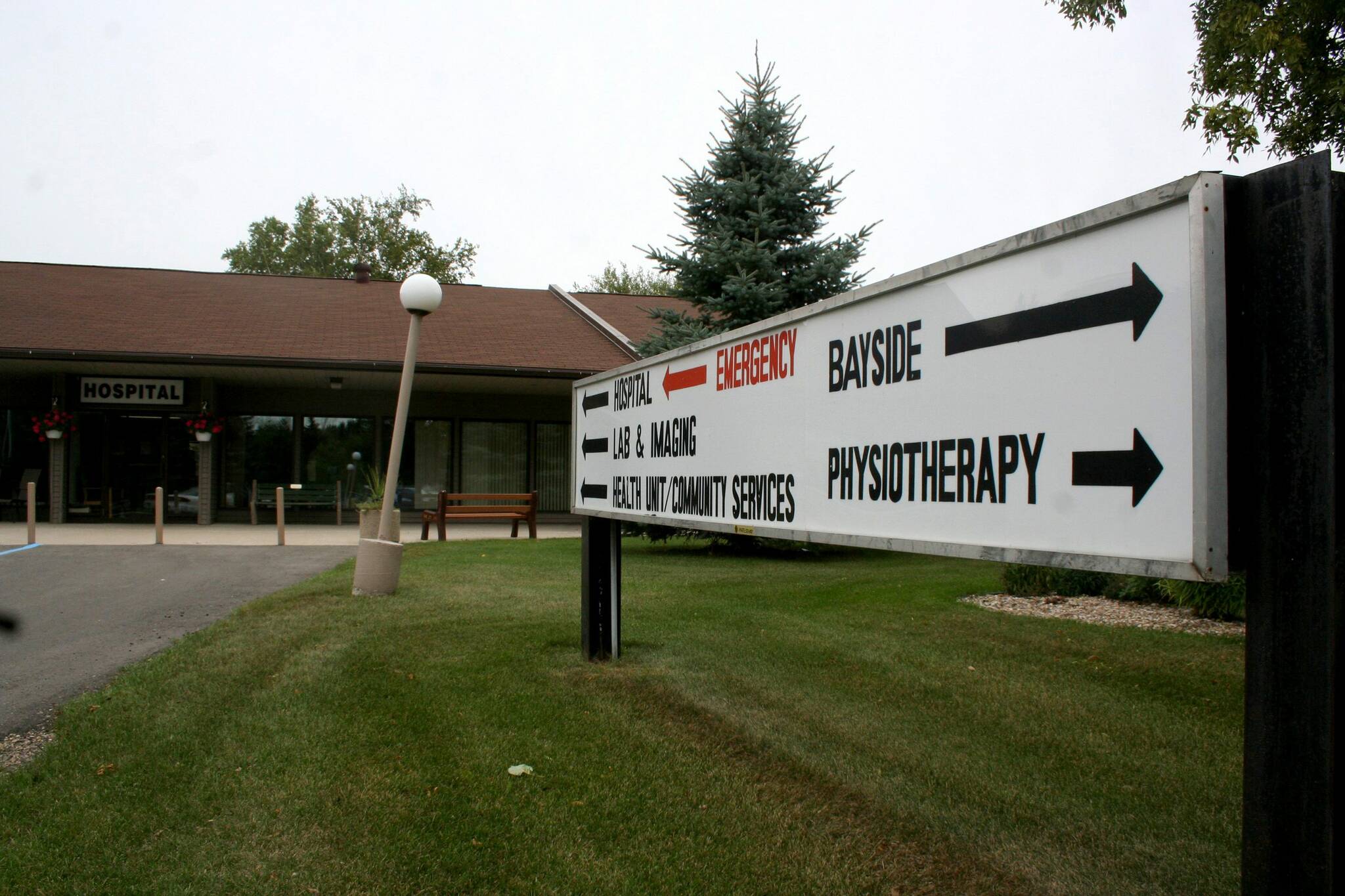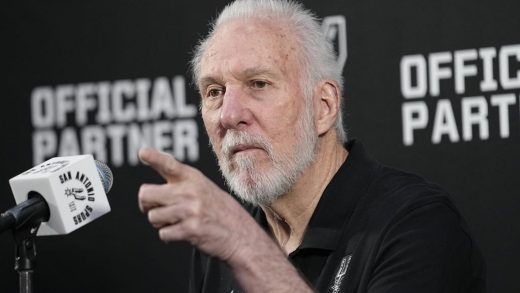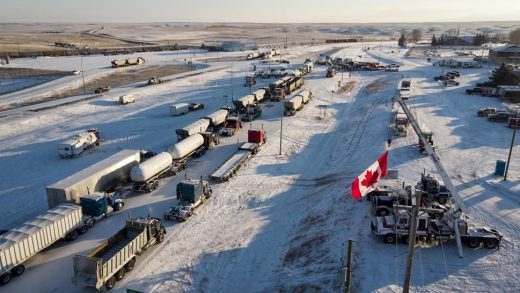
A Manitoba small town desperate to bring doctors to the rural community is reaching into its coffers to hire a private recruitment firm to perform a job intended for the regional health authority.
Municipality of Killarney-Turtle Mountain Mayor Janice Smith said the local council is prepared to cut a cheque to the recruiter who successfully finds two physicians willing to work in the community 240 kilometres southwest of Winnipeg.
Since last spring, the Killarney health centre and emergency department has been short at least two doctors, with the Prairie Mountain Health Region filling vacancies by using locums (travelling physicians) and international medical graduates.
“Is it a municipality’s responsibility? Probably not, but Killarney-Turtle Mountain feels that it is,” Smith said.
SUPPLIED Killarney-Turtle Mountain Mayor Janice Smith.
A request for proposals issued by the municipality to find a firm closes Monday.
“It is our responsibility as a municipality to take care of our constituents,” she said. “As a council, we all felt strongly that if we could try something to help, we were going to try it.”
Physician recruitment is normally the jurisdiction of regional health authorities. However, rural communities have pitched in on recruitment efforts in the past. The Association of Manitoba Municipalities estimates 95 per cent of its members are directing financial resources toward health human resources.
Smith said the municipality hired a recruitment firm to help out in 2016 and it found two doctors for the community at a cost of $240,000; the health region covered about half of the tab, she said.
Addressing the shortage is an urgent matter, Smith said, noting the increased workload is stressful for the remaining physicians, who have seen their patient lists grow.
“We worry about the doctors that are there,” she said. “Nobody wants to have an overworked doctor.”
The local council is working collaboratively with Prairie Mountain Health, she said, noting the regional authority has also faced challenges in its own recruitment efforts.
Manitoba has one of the smallest complements family doctors, per capita, in Canada; in Prairie Mountain Health, there are just 149 doctors per 100,000 residents.
“It is our responsibility as a municipality to take care of our constituents. As a council, we all felt strongly that if we could try something to help, we were going to try it.”–Killarney-Turtle Mountain Mayor Janice Smith
“We are losing doctors in droves to other areas of the country, to other areas of the world, and rural medicine isn’t looking as enticing as it probably once did at one point,” Smith said.
Ideally, the targeted recruitment program will find candidates who are the “proper fit” — meaning doctors who want a rural lifestyle, she added. It’s not known what it will cost the municipality.
A spokesman for Prairie Mountain Health said an interview could not be accommodated Thursday. Instead, the RHA provided a statement from chief executive officer Brian Schoonbaert.
The region supports Killarney’s recruitment initiative amid a national physician shortage, Schoonbaert said, adding PMH is constantly recruiting to address vacancies and there are ongoing recruitment and retention initiatives.
“We continue to engage and support our communities through recruitment and retention grants, return of service agreements, and other community-minded incentives,” Schoonbaert said.
Jillian Austin/Brandon Sun Files
Since last spring, Killarney’s health centre and emergency department has been short at least two doctors, with the Prairie Mountain Health Region filling vacancies by using travelling physicians and international medical graduates.
“We have agreed to a 50 per cent cost share for this approach as we have a high rate of physician vacancies at the facility and remain committed to maintaining 24/7 emergency department services there.”
Smith said the Manitoba government could do more to assist municipalities that are being saddled with the financial burden of rural health care, which is primarily a provincial responsibility.
“I would love for them to pick up the whole tab. We’ll do all this legwork for them — I wouldn’t mind doing that at all — but in a perfect world it would be nice that we weren’t using our municipal money to do it, but it is something that our council has decided to do,” she said.
Manitoba municipalities have been forced to spend their budgets on physician recruitment and retention for more than a decade, AMM president Kam Blight said.
Meantime, the Progressive Conservative government has not increased operating funding for local governments since 2016.
“It’s deeply concerning that rural municipalities who have been dealing with a funding freeze from this government for years are now having to allocate money they don’t have, quite frankly, to work with a private agency to try to recruit doctors to their community.”–NDP health critic Uzoma Asagwara
“We continue to call for the prompt implementation of a comprehensive physician recruitment and retention strategy to support municipalities, licensing requirements for qualified nurses to be streamlined and more paramedics to be recruited to operate in rural communities across Manitoba,” Blight said.
Health Minister Audrey Gordon and Municipal Relations Minister Andrew Smith did not respond to a request for comment Thursday.
Instead, in a statement, a government spokesperson said regional health authorities have very active recruiting efforts and initiatives, adding the province is looking forward to providing more details about recruitment programs under its $200 million health human resources plan, announced in November.
NDP health critic Uzoma Asagwara said physician recruitment has suffered owing to a lack of provincial strategy for rural health care. Both the AMM and unions representing health workers have called on the province to share details about rural health care under the Clinical and Preventative Services Plan released in 2019.
“It’s deeply concerning that rural municipalities who have been dealing with a funding freeze from this government for years are now having to allocate money they don’t have, quite frankly, to work with a private agency to try to recruit doctors to their community,” the Opposition critic said.
Asagwara said residents expect the province to have a plan to strengthen public health care. The New Democrats will release a rural health-care strategy closer to the election, set for Oct. 3, the Union Station MLA said.
“We’ve been in rural communities meeting with communities, residents and professionals to learn from them and listen to what their needs are,” Asagwara said. “We’ve already been doing that work.”
— with files from the Brandon Sun



